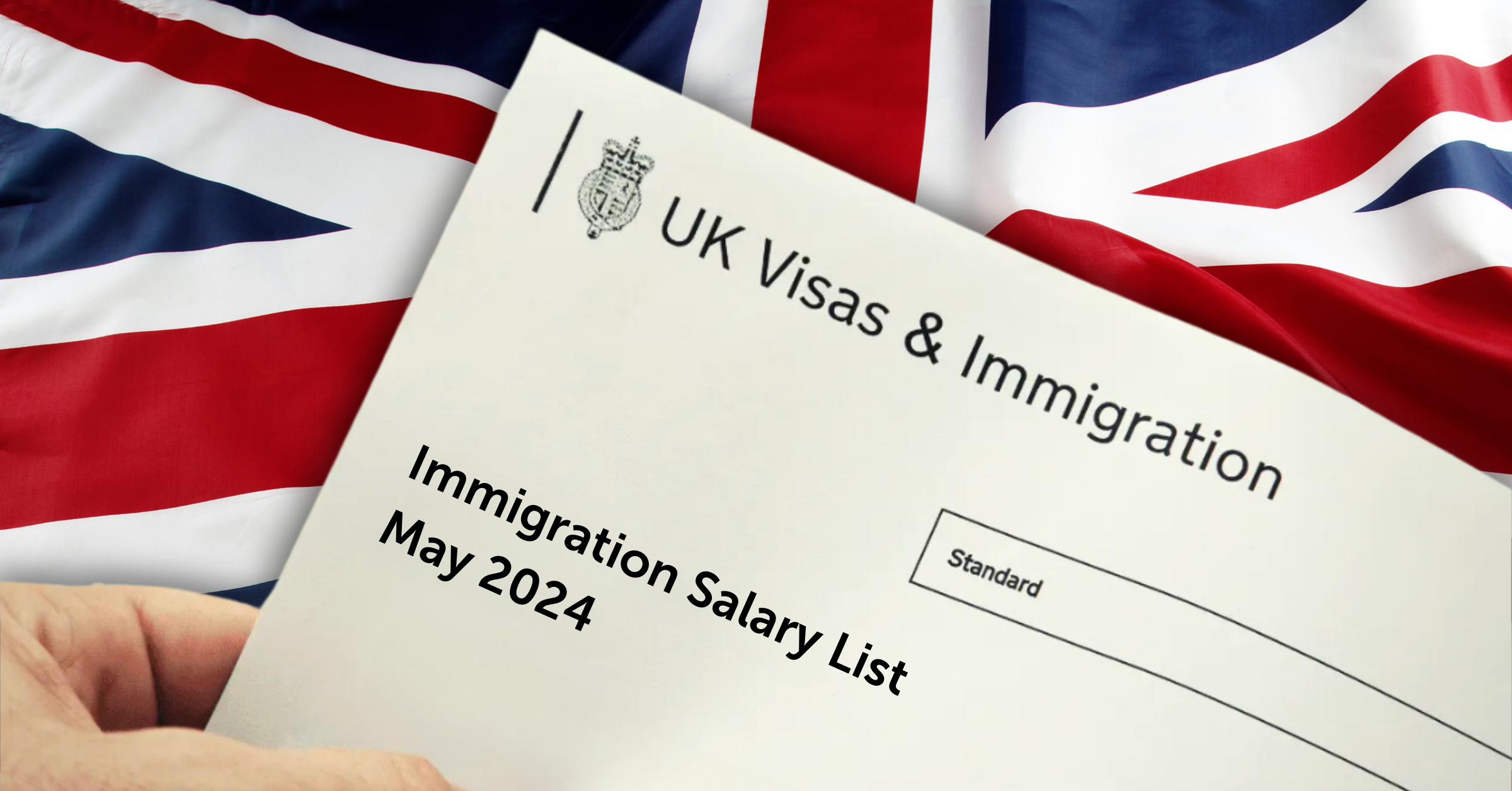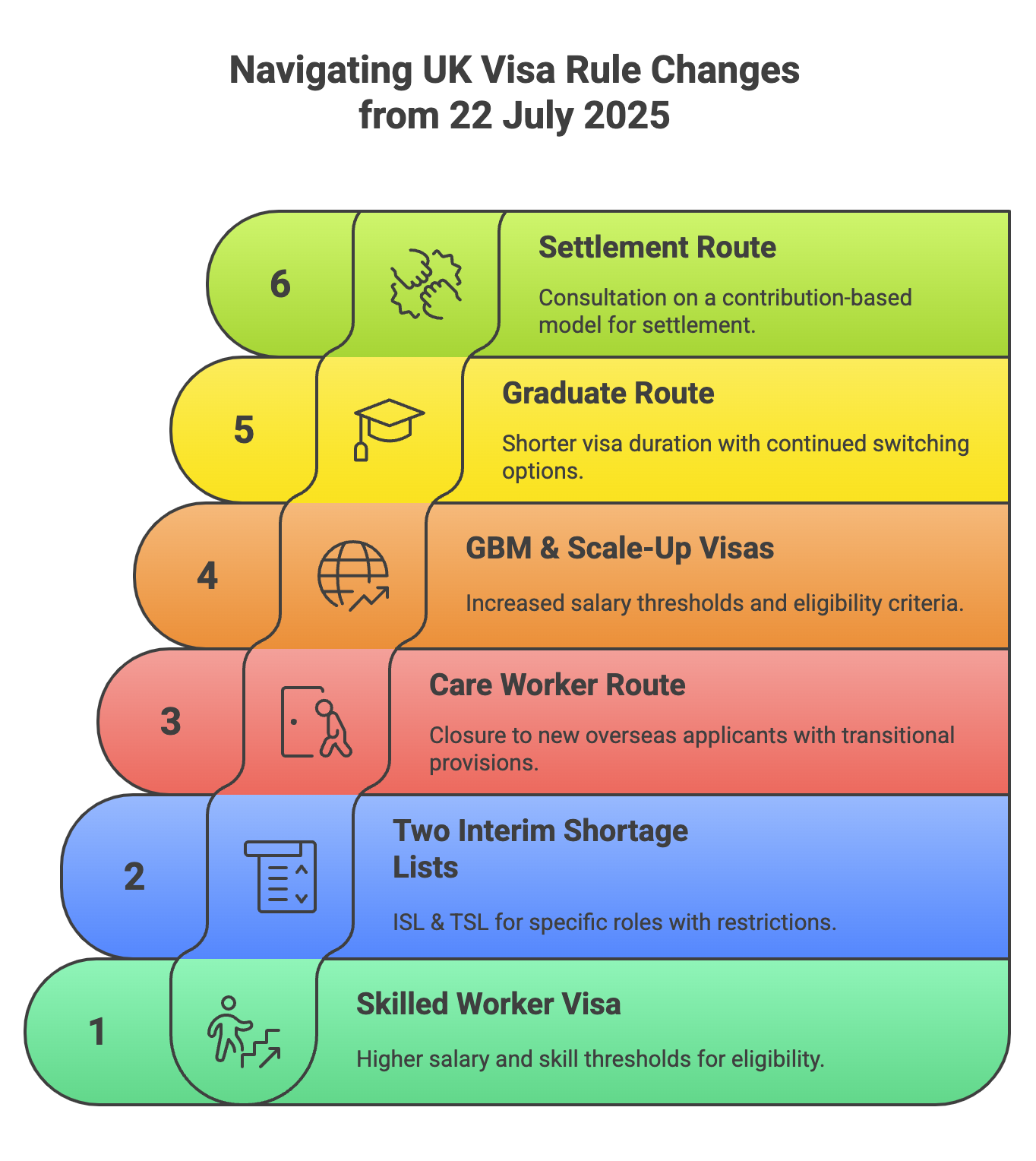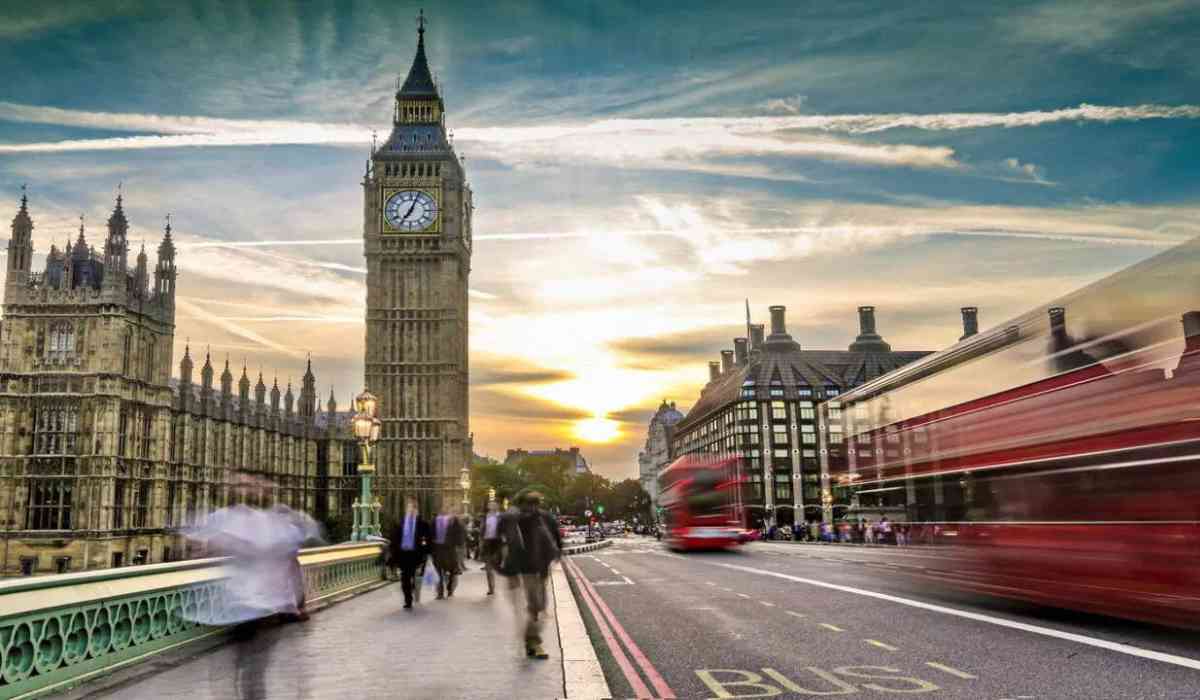The United Kingdom is undergoing its most significant immigration reform in decades, with sweeping changes to the Skilled Worker visa and broader immigration policies. Effective 22 July 2025, these updates have sparked widespread concern and uncertainty—especially among Indian students and professionals who make up the largest group of Skilled Worker visa holders in the UK.
From increasing skill and salary thresholds to revamping settlement pathways, the new rules aim to curb net migration and shift the UK's focus toward attracting only the "brightest minds". While these policies may reflect a strategic recalibration of national priorities, they come at a substantial cost to inclusivity and opportunity—particularly for those from middle-skilled professions and less privileged backgrounds.

A Turning Point in UK Immigration Policy
The policy overhaul, based on the white paper titled ‘Restoring Control Over the Immigration System’, reflects a stark departure from the UK’s traditionally inclusive immigration stance. Surprisingly, these changes are being spearheaded by a Labour government, a party historically known for advocating multiculturalism and migrant rights.
This ideological shift is not isolated to the UK. Across Europe, governments are tightening their immigration controls, driven by concerns over public services, national identity, and perceived misuse of the system. However, the consequences of these reforms—particularly for countries like India—are profound and multifaceted.

Key Changes to the UK Immigration System (Effective July 22, 2025)
1. Skill Threshold Raised to RQF Level 6
One of the most impactful changes is the redefinition of what constitutes a “skilled worker”. Only occupations at RQF Level 6—equivalent to a UK bachelor’s degree—will qualify. This effectively excludes over 180 previously eligible occupations, many of which fell under supervisory or technical roles in the IT, engineering, and healthcare sectors.
Indian professionals in IT support, engineering technicians, health technologists, and similar roles will be particularly affected. These medium-skilled roles, once widely accessible, will no longer qualify for visa sponsorship.
2. End of Overseas Recruitment for Care Workers
From July 22, overseas recruitment for social care worker roles will cease. Although those already sponsored by this date can continue under existing rules, no new applications will be accepted. This change comes in response to widespread misuse and exploitation within the social care visa category.
Notably, care workers will also lose the ability to bring dependents and will no longer be eligible for any concessions related to visa fees or salary thresholds.
3. Significant Increase in Salary Thresholds
Salary thresholds have been sharply revised:
-
General Skilled Worker minimum salary: Raised from £38,700 to £41,700
-
PhD holders: Now need a minimum salary of £37,500
-
STEM PhD or Temporary Shortage List (TSL) roles: Minimum salary is £33,400
-
Health and Care Visa holders: Continue at £25,000, based on national pay scales
-
Transitional rate for pre-April 2024 entrants: £31,300
For Indian professionals, verifying that their designated occupation code meets both skill and salary thresholds is now a prerequisite for any new application.
4. End of the Immigration Salary List
The UK will abolish the previous government’s immigration salary list, further limiting flexibility and access for middle-skilled workers. A new streamlined list of eligible occupations will be implemented until the end of 2026. The Migration Advisory Committee will then reevaluate which jobs—if any—should be reintroduced under updated guidelines.
5. Digital eVisas and Compliance
Starting 15 July 2025, the UK will roll out digital eVisas for all applicants. These eVisas will replace traditional visa stickers and will be linked directly to the applicant’s passport. Employers and landlords will use the UKVI system to verify right-to-work and right-to-rent statuses.
Visa holders will be responsible for updating personal and passport details online. Failure to comply may result in invalid immigration status—highlighting the need for greater digital literacy and vigilance among applicants.
6. 10-Year Path to Settlement
Perhaps the most controversial update is the change to Indefinite Leave to Remain (ILR) requirements:
-
The qualifying period for settlement will be extended from 5 years to 10 years.
-
Continuous legal residence and compliance with the new salary criteria will be mandatory.
-
A proposed “earned settlement” route may allow earlier settlement for individuals making significant “Points-Based contributions,” but this is still under consultation and has no confirmed timeline.
For Indian professionals hoping to build a long-term life in the UK, this extended timeline represents a major delay and greater uncertainty.

Additional Upcoming Changes
By the end of 2025, further adjustments are anticipated, including:
-
Increased immigration skills charges
-
Stricter English language requirements
-
A new framework for family visas
Universities will also face tighter scrutiny, with potential loss of visa sponsorship licenses if compliance standards are not met. International students, especially from India, will find it harder to remain in the UK post-graduation, as the Graduate visa duration is expected to reduce from two years to 18 months.
What Indian Professionals & Employers Must Do Before July 22
The final deadline to apply under current Skilled Worker rules is July 21, 2025. To avoid falling under the stricter post-July regime:
Key Action Points:
-
Confirm if your occupation qualifies under RQF Level 6
-
Check if your salary meets updated thresholds
-
Ensure your employer issues a Certificate of Sponsorship (CoS) before the deadline
-
Apply before July 22, 2025 to benefit from transitional provisions
-
Prepare for compliance with digital eVisa systems

The Human Cost: From Opportunity to Exclusion
A viral video recently showed an Indian student tearing a blank paper at his UK graduation ceremony, symbolically protesting the immigration white paper. The video encapsulates the growing frustration among Indian students and professionals who feel betrayed by a system once seen as inclusive.
The message now seems to be clear: unless you contribute directly to the economy and fit into narrow high-skill categories, the UK’s doors will remain closed. This move represents a shift toward economic pragmatism over cultural inclusivity, where privilege begets opportunity.
A Paradigm Shift for Indian Aspirants
What once seemed like a mutually beneficial partnership—Indian talent fueling the UK's growth and innovation—has now become a selective filter that rewards only a narrow slice of applicants. While the UK stands to gain from a smaller but elite talent pool, the broader global goodwill and diversity that once defined its campuses and workplaces may gradually erode.
This is not just a policy change; it's a philosophical shift. For Indian students and professionals, the UK remains a destination of promise—but one that now demands more than ambition. It demands precision, privilege, and perfect alignment with its evolving priorities.
With inputs from agencies
Image Source: Multiple agencies
© Copyright 2025. All Rights Reserved Powered by Vygr Media.

























